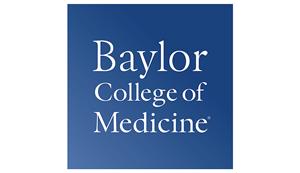GT Mentorship Showcase
Page Navigation
-
GT Mentorship Showcase 2025
- Anika Bose AHS
- Natalia Camelo CHS
- Lucia Canales RPHS
- Diana Castro THS
- Anika Chock DHS
- Ethan Chu AHS
- Chloe Donaldson CHS
- Laiba Effendi KHS
- Austin Elam DHS
- Robell Ephrem DHS
- Ayo Fabunmi MHS
- Amya Johnson MHS
- Rosepreet Kaur CHS
- Abdullah Khaled EHS
- Megan Marlowe RPHS
- Sydney McCoy AHS
- Andrew Nguyen BHS
- Alyssa Nguyen-Boston KHS
- Dawson Nunn RPHS
- Nguyen Pham KHS
- Jesse Phung KHS
- Anya Pillai CHS
- Oz Smith AHS
- Alexa Solorzano THS
- Tara Ume-Ezeoke DHS
- Neha Varghese EHS
- Class of 2026
-
GT Mentorship Showcase 2024
- Maya Abraham RPHS
- Bunmi Adesoba EHS
- Kavya Agar DHS
- Zoe Als AHS
- Anant Asthana DHS
- Amaka Azuogu WHS
- Trisha Botcha CHS
- Matthew Builes EHS
- Zijin Chen DHS
- Sophia Cruz CHS
- Anubhav Dasgupta DHS
- Gabby Donovan DHS
- Avi Ettinger RPHS
- Karthik Gundlapalli DHS
- Nyala Henson THS
- Emily Hoang KHS
- Saachi Jain CHS
- Zach Mok RPHS
- Aiden Picone CHS
- Madison Quach BHS
- Layla Raye THS
- Laya Reddy AHS
- Kai Tinnin AHS
- Zahara Trent THS
- Aishwaryaa Udeshi DHS
- Gaurav Verghese HHS
- Meadow Votis EHS
- Class of 2025
-
GT Mentorship Showcase 2023
- Sahil Adtani (CHS)
- Amani Bass (HHS)
- Sabrina Canales (DHS)
- Veda Chinapuvvula (HHS)
- Hannah Chu (DHS)
- Avani Desai (DHS)
- Sanjana Dhakshinamoorthy (DHS)
- Darya Erdogan (RPHS)
- Emma Huo (DHS)
- Daniel Ihe (THS)
- Anuhya Juturi (CHS)
- Ashley Kurian (DHS)
- Ralph Louis (BHS)
- Andrew Lu (CHS)
- Noah Luke (DHS)
- Adam Monroe, Jr. (MHS)
- Makhi Moore (THS)
- Lana Nguyen (THS)
- Anya Patwa (EHS)
- Eric Qin (DHS)
- Mikhaila Reid (THS)
- Tejaswi Sriram (THS)
- Shray Thotangare (AHS)
- Bhargav Vaidya (DHS)
- Katherine Yue (DHS)
- Class of 2024
-
GT Mentorship Showcase 2022
- Rhea Biswas (DHS)
- Neha Chandran (CHS)
- Aman Chaudhary (HHS)
- Annabelle Cheong (DHS)
- MaryEvyn Cutshall (KHS)
- Abhinav Devireddy (DHS)
- Anshumi Jhaveri (DHS)
- Mayank Kulkarni (THS)
- Abigail Kurian (RPHS)
- Christopher Kwong (THS)
- Lilia Mitra (CHS)
- Arfa Momin (AHS)
- Tharun Nayar (EHS)
- Leyna Nguyen (KHS)
- Aarya Parmar (CHS)
- Prisha Patel (AHS)
- Samyu Prabu (CHS)
- Jilu Saji (DHS)
- Josleen St. Luce (BHS)
- Disha Udtha (DHS)
- Vishwa Venkatesan (DHS)
- Jacob Wipf (THS)
- Class of 2023
- GT Mentorship Showcase 2021
-
Ann Phan,
Dulles
High School
-

Ann is a senior at Dulles High School where she was President of the Math and Science Academy, Vice President of the Science National Honors Society, and Director of Finances in Spanish Honors Society. As a founder of Fort Bend SURF, she helped Texas secure its first comprehensive and mandatory sexual education curriculum. She is also a National Merit Finalist, National AP Scholar, and AP Capstone Diploma Recipient. In her mentorship under Dr. Kjersti Aagaard MD Ph.D. and Dr. Sohini Banerjee Ph.D., she learned the importance of communicating scientific information in a way that is accessible to the general public. More than just learning professionalism, she also learned how science can be used as a tool for patient advocacy. She will take this knowledge with her to Columbia University, where she plans to study Biology and Public Health in the fall. Ultimately, she hopes to go to medical school and possibly study reproductive endocrinology, advancing reproductive health through scientific research and clinical care.
"To learn to doubt is to learn to think." - Octavio Paz
-
Mentors
Kjersti Aagaard, MD, PhD
Sohini Banerjee, PhD

Dr. Kjersti Aagaard, an expert in maternal-fetal medicine, is the Henry and Emma Meyer Professor Chair in Obstetrics and Gynecology at Baylor College of Medicine and Texas Children’s Hospital. Her research efforts have yielded groundbreaking advances in medicine and science. One example of Aagaard’s research has been in the early development of the microbiome. Dr. Sohini Banerjee is a post-doctoral fellow in Dr. Aagaard's lab.
Project Abstract
The Aagaard laboratory at Baylor College of Medicine is a maternal-fetal medicine laboratory investigating the role of the epigenome and microbiome on human health. Most prominently, their research first proposed an independent, fetal microbiome unique to maternal environments. Under the Barker hypothesis, modifications to this fetal microbiome can have consequences on adult disease and health. Chorioamnionitis is one such infection that modifies this environment. In the project “LPS, IL-1β or U.parvum-induced chorioamnionitis in primates alters inflammation and the resident microbiome,” led by Dr. Sohini Banerjee, variations in alpha and beta diversity support the previously proposed independent fetal environment as an important factor in understanding maternal-fetal disease. Future research may further characterize the role of human microbes on healthy pregnancies and infants, as well as, in a broader sense, contribute to the treatment of metabolic disease.

